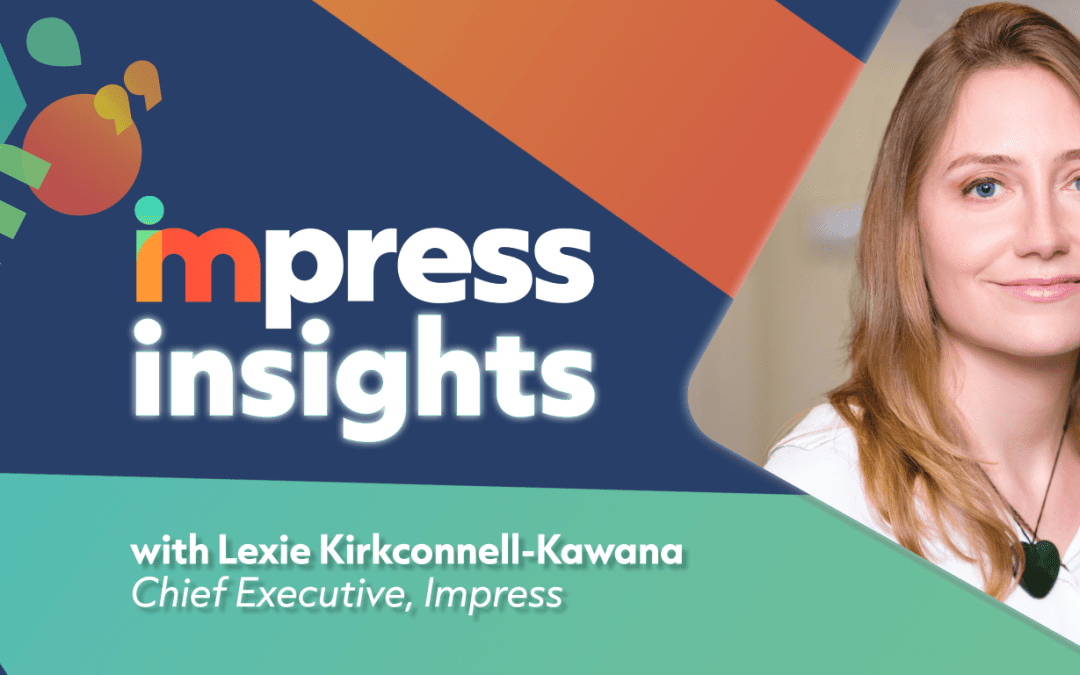This blog is an extract from an article by Lexie Kirkconnell-Kawana, Chief Executive of Impress, the independent monitor of the press. Our Founder and CEO Pam Vick sits on the board of Impress as a non-executive director.
“On the 30th July this year, violence erupted in the Merseyside town of Southport after mis- and disinformation rapidly spread online claiming the perpetrator of a local stabbing was a Muslim asylum seeker.
Despite statements of condemnation and sympathetic platitudes, violence continued to spill onto the streets in the weeks that followed, spread by an information ecosystem largely unregulated, with few people and groups held to account for the fear, division and violence they caused through propagating harmful speech.
There are many socio-cultural, political and behavioural factors that drive mis- and disinformation, but it is no coincidence that the loss of high-quality ethical news providers, and decline in that news provision, has been matched by the rise of mis- and disinformation – in fact I believe they are directly correlated. The public’s need and demand for information has always remained constant. But if the only meaningful alternative for communities left behind in news and information deserts are the shock jocks, bots, and conspiracy theorists, it’s no wonder we are seeing unprecedented polarisation, social discord, community breakdown and the ensuing violence, as they are forced to choose those sources for their news.
With the introduction of generative AI and the acceleration of machine learning and automation across our digital services, disinformation (the deliberate attempt to influence through the sharing of false information) is only going to scale and spread exponentially: the price for influence campaigns is now incredibly cheap, with far higher volumes of content reaching audiences on a much more personalised level through micro targeting by personality. And the use of fully automated and individualised conversations through sophisticated bots is also set to become part of our day to day online experience.
Not only is the importance of well-sourced, accurate and accessible information that is relevant to communities going to become more important, but ensuring there is accountability for those bad actors (or negligent ones) is as well. And when things go wrong, bodies like Impress will be there to ensure there is independent and effective redress if the sources of mis- and disinformation are found to be news publishers that we regulate. Which is why we need to continue to enable an ecosystem where the public demand and are incentivised towards quality sources of information like regulated news providers, where those news providers are able to operate sustainably and raise the quality and standards of their news provision to outcompete irresponsible and untrustworthy sources. It is this virtuous cycle that will disincentivise and drive out mis- and disinformation. We therefore continue to be encouraged by growth in Impress’ membership, and growth in their audiences as this means the public is turning towards these providers as trusted news and information sources.
On our side, we obviously understand public statements are not enough. Impress will continue to work with partner organisations to understand and devise solutions for this growing problem – this was one of the matters raised at the Alliance of Press Council of Europe Annual General Meeting that Impress hosted this year. For now, we will continue to raise awareness about the good sources of information (regulated news providers), news standards and the availability of redress, and work proactively to intervene before these influence campaigns take hold.”
By Lexie Kirkconnell-Kawana
Chief Executive, Impress

